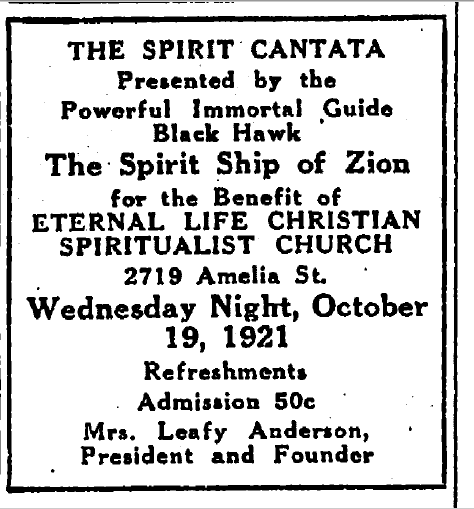This one is kinda different....
Marcelino Manuel da Graça
Marcelino Manuel da Graça (January 25, 1881 or 1884—January 12, 1960), better known as Charles Manuel "Sweet Daddy" Grace, or Daddy Grace, was the founder and first bishop of the predominantly African-American denomination the United House of Prayer For All People.[1] He was a contemporary of other religious leaders such as Father Divine, Noble Drew Ali and Ernest Holmes. Daddy Grace, an innovative Christian evangelist, faith healer, pastor and bishop, used his unique worship style to birth a distinctive religious institution on the American scene. Many of his followers claimed miraculous acts of faith healing while attending services and others saw his ministry as a sign from God of the imminent return of Jesus Christ.
Marcelino Manuel da Graça's parents were Manuel (1837–1926) and Gertrude (1847–1933) da Graça. Marcelino da Graça's sibling group consisted of one brother, Benventura, and four sisters: Eugenia, Slyvia, Amalia, and Louise. He was born January 25, in Brava in the
Cape Verde Islands, then a Portuguese possession off the west coast of
Africa.
[2] There is no verifiable information to confirm Grace's exact birth year, but most sources either state 1881 or 1884. The family of Manuel da Graca, the father of Marcelino, arrived in America at the port of
New Bedford, Massachusetts, aboard a ship called the
Freeman in May 1902. It is unclear whether Marcelino was aboard the ship in 1902, but ship manifests show that he visited America in 1903, and in 1904 he came as a cabin passenger aboard the schooner called Luiza.
Marcelino Grace married twice. His first wife was Jane "Jennie" Lomba, a Cape Verdean woman also known as Jennie Lombard. They were married in 1909. She bore Grace a daughter, Irene, in 1910 and son, Norman in 1912. Norman died in 1947. Whether they officially divorced was disputed. His second wife was Angelina (Montano) Grace, of Mexican descent, whom he married in 1932. She bore him a son, Marcelino, in 1935. They divorced in 1937.
In her book
Daddy Grace, Marie W. Dallam notes that the entire da Graca family were
Roman Catholics in their homeland and opened up to different forms of the Christian experience once they immigrated to the United States. The US-based Protestant
Church of the Nazarene was the first non-Catholic Christian church to establish a mission in Cape Verde in 1900.
Benventura da Graça, the brother of Marcelino, would later become a Church of the Nazarene pastor in the US. Marcelino, however, was said inside the da Graça family (according to the research done by Dallam) to have always been a "special child". Unlike the conventional ministry of his brother, he went on to establish a unique and independent Christian ministry. After becoming a famous bishop it was recounted that as a youth he had received a commission to preach directly from God.













